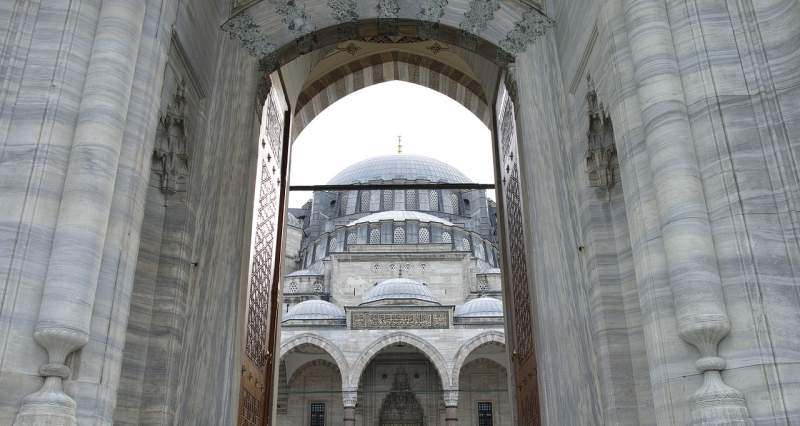“God turns you from one feeling to another and teaches by means of opposites so that you will have two wings to fly, not one.” (Jalaluddin ar-Rumi)
There are multiple verses of the Quran which talk about the alternation of the day and the night.
Among the many lessons from this parable, one of them is about the cycle of our life.
Night and day are both parts of a day. They are symbolic of the kind of time we are having in life- darkness, or light; bad times or good times.
Little light (dawn), a lot of light (forenoon), dying light (late afternoon) etc. are all symbolic of the good we have- little, a lot or a bit.
The night similarly on the other hand could be slightly dark like the time twilight, or very dark like the middle of the night. All in all, this sums up one thing among many others- a human life will have good times and bad times alternating between them just like the day and the night alternate.
In winter the nights are long, and in summer the days are long. This dichotomy has been the subject of many a poet, philosopher and sage as well. Just as Jalaluddin ar-Rumi said:
“God turns you from one feeling to another and teaches by means of opposites so that you will have two wings to fly, not one.”
Wisdom Behind Hardships
Rumi looks at the two feelings like two wings to fly- almost like there is an inherent necessity for the presence of both. Many a book has been written on the problem of hardships and why people suffer. Among the many reasons that people have some are as follows:
– Hardships help us better understand ease. If we never knew hardship we would never know the true value of ease.
– Hardships make us stronger and better.
– Hardships expiate our sins.
– Hardships make us less attached to this world and more attached to the hereafter.
– Hardships make us turn to God in times when we do not.
On the flip-side, it is important to remember that ease itself is also a test. Many a times ease makes us slack off of our good deeds. Most of us are the laziest when we are on holiday or on a day off. Our prayers go bad, we very weirdly enough moan and complain a lot more and overall when our productivity drops.
Moreover, we are less remembering of God, and more prone to committing sins and transgression. One of the biggest traps in times of ease is the feeling of self-sufficiency and not feeling any neediness for God’s mercy. This is in fact a great disaster for the soul.
Islam came to help us balance life in both ease and hardship. It is normal human nature to hate times of hardship and to enjoy times of ease, so Islam does not want us to lose that balance.
The Prophet Muhammad (peace be upon him) would be delighted to be with his grandsons Al-Hasan and Al-Husain (may God be pleased with them), and he was sad at the demise of his little boy Ibrahim. However, through it all, he kept one thing constant- the destination.
Islam came to us to define for us our sole purpose in life. God created us and to Him is our return. This life is the test, is the bridge to the hereafter. And our activities on the bridge determine our destination.
Everything on earth shall perish, but the face of your Lord Full of Majesty and Honor will remain. (Quran 55:26-7)
This verse determines life for the human being. Good times will perish, bad times will perish, everything on earth shall perish. However, whatever is done for God remains. The ultimate aim for a Muslim is to make sure that God remains their aim equally in both times of ease and in times of hardship.
To help us navigate, let us sort out a simple 3 step contingency plan for all times:
Taqwa when in Hardship
And whosoever has taqwa of God, He will make a way out for him. And provide for Him in ways He never thought possible. (Quran 65:2-3)
In times of hardship the door of taqwa– God-consciousness, love of God, fear of God, obeying His commands, staying away from His prohibitions- is the door that leads us to an exit. The more taqwa we can have, the better Allah will provide a way out.
Remembering Allah in Times of Ease
The Prophet Muhammad (peace be upon him) said:
Remember Allah in times of ease, and He will remember you in times of difficulty. (At-Tirmidhi)
Prophet Muhammad, as his wife Aisha reported, “used to remember Allah at all times.” (Muslim)
Remember Allah, make du’a and do a lot of good deeds when times are well and good. Allah will make that a means to easier times when hardships do arrive.
Being Grateful
If you are grateful, I will increase you (in everything). (Quran 14:7)
If we are grateful people, God will increase us in more and more of His blessings.
Whether in hard times or good times, gratefulness is a character trait that helps us sail through. It is what keeps us on our feet in the best of times, and helps us sail in the hardest of times.
(From Discovering Islam’s archive.)



